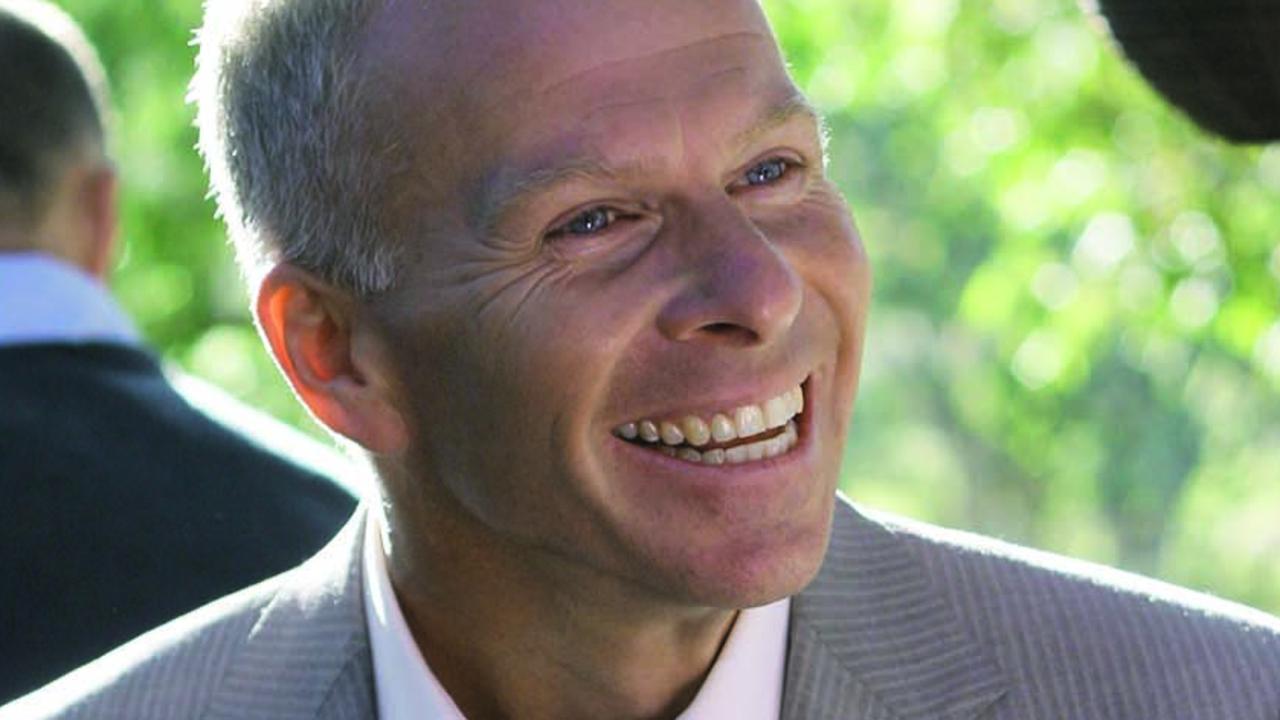Paper trail could be undoing of Palmer
THE Chinese want to know where their millions have been spent.

THE payment advice from the National Australia Bank to Clive Palmer’s flagship investment company, Mineralogy, was short but sweet.
“Dear Customer, we have today received an inward payment in your favour, which has been credited to your account as follows,’’ the letter from the NAB to Mineralogy, marked “attention Vimal Sharma”, stated on November 23, 2012.
The document, one in more than 1200 bundles of material that form part of a Federal Court case in which Mr Palmer’s company has been accused by the Chinese of wrongfully spending very large sums of cash, shows $13,471,392 hit Mineralogy’s Corporate Cheque Account, “Port Palmer Operations’’, that day.
The Bank of China sent the money. The company that released the money was Citic Pacific, the Chinese-controlled financial powerhouse vitally important to China’s international investment objectives. It is so important in Beijing that Citic’s leader reports to China’s political leadership.
Just hours earlier, Palmer had put in a performance on the ABC’s Lateline program in which he telegraphed some of the painful punches he would soon be landing on the Liberal National Party in Queensland and federally. Palmer, a generous donor who had helped bankroll the LNP and celebrated its ousting of the Anna Bligh-led Labor government in early 2011, was angry with the conservative party by late 2012.
The party’s heavyweights were angry, too. They could not “manage’’ the maverick self-proclaimed billionaire. His increasingly public attacks and demands were damaging. Relationships were fracturing. Loyalties were being tested.
Palmer, whose membership of the party was suspended and then reinstated amid the rumbling and an uneasy attempted truce, told Lateline he was resigning from the LNP. But he was not going to exit politics.
Host Tony Jones asked: “So … are you considering setting up your own party?’’
Palmer: “Not at this time, Tony. I think that the parties are there and the issues are out there. It’s important that we address the issues. Parties and individuals can be a distraction from that and that’s why I think that the issues will speak for themselves.’’
Jones: “Are you planning to actually enter politics in a formal way? Let’s put it that way. Are you planning to run in any seat as an independent?’’
Palmer: “Not at this time, Tony. I think I’m thinking about what can be done. It’s a bit of a shock to me to leave a party I’ve been a member at for 43 years and to leave in such circumstances, but I weighed everything up.”
Queensland Deputy Premier Jeff Seeney and Premier Campbell Newman would subsequently assert that Palmer had a deluded view that he somehow owned the party — and that he was furious when its leading politicians would not make decisions about the state’s coal reserves that could have delivered a financial bonanza to the resources tycoon.
Palmer has emphatically rejected those claims. He launched Supreme Court defamation proceedings against Newman three days ago over more recent claims that Palmer was “buying’’ politicians around Australia.
The bitter battle escalated when Seeney, using parliamentary privilege on Thursday, branded Palmer a “crook’’ and accused him of fraud in his company’s dealings with the millions of dollars he got from the Chinese. Those allegations are also emphatically denied by Palmer.
It has come to this partly because a commercial tie-up that once showed great promise for Palmer and Citic Pacific is now mired in massive losses, angry recriminations and costly litigation in several jurisdictions. Citic and some of its executives have been accused of incompetence and worse by Palmer.
Citic has bled more than $7 billion here since its disastrous decision to develop an iron ore project based on tenements controlled by Palmer in Western Australia’s Pilbara region. The loss of face for Chinese executives in Beijing, Perth and Hong Kong as a result of the abuse, huge cost overruns and delays with China’s largest project in Australia burns deeply.
But the Chinese are playing a long game. As the legal disputes drag on, Palmer is increasingly agitated at his inability to get tens of millions of dollars in royalties he insists he is owed from the shipments of iron ore that have started going to mills in China.
Citic finds itself in the enviable position of being praised as a good corporate citizen by Tony Abbott and his counterparts in the states. The Chinese company is still bruised but its actions show it is no longer interested in trying to placate Palmer or avoid a fight with him and Mineralogy.
Relations are now close to toxic. Back in late November 2012, when the dynamic was not nearly as bad, the significant cash deposit from Citic Pacific bumped the Mineralogy account’s balance up to an amount just shy of $17 million. It was a handsome sum. Over the ensuing weeks and months, according to documents and affidavits reviewed by The Weekend Australian, the account was steadily drained. The cash flew out of the account at a rate of knots. It went in many directions.
These are early but critical days in the latest round of bitter litigation between Palmer and Citic Pacific, but the Chinese are raising the stakes.
If their claims, which are being propelled by senior lawyers who understand the seriousness, are true, Mineralogy faces the prospect of being investigated for alleged misappropriation-related offences. There may be no greater risk to the latest force in Australian politics than an exhaustive probe into how the major company controlled by its leader spent Chinese cash.
Most of the “increasingly exorbitant’’ expenditure, the Chinese allege, has been wrongful. Their lawyers say Mineralogy had no right to spend the money in the ways in which it was spent. They express a determination to follow the money trail.
The accusations and inferences raised in the Federal Court by affidavits, financial documents and by leading commercial silk Andrew Bell SC for Citic Pacific, are that Mineralogy has helped itself to a large pot of cash for purposes expressly not permitted.
The documents that have been made available as a result of the Federal Court litigation and ongoing confidential arbitration proceedings in Brisbane show that some of the larger lumps of cash from the corporate cheque account went to lawyers acting for Palmer and Mineralogy.
It is of particular interest to Citic that its money appears to have been used by Mineralogy to pay for top-shelf lawyers to oppose Citic in costly litigation.
The documents show that China’s cash was also used to pay for engineering consultants, environmental experts, marine advisers, flights, salaries of Mineralogy staff and self-managed superannuation funds. The political kicker is that electioneering expenses for the subsequent federal election campaign led by the Palmer United Party’s founder were also funded by Citic, according to its lawyers in the Federal Court.
Two major withdrawals — of $10m on August 8 last year and $2,167,065 three weeks later, shortly before the September 7 federal election — are cloaked in intrigue. The Chinese want to know if their money underwrote much of the Palmer United Party’s election campaign when Palmer’s main business, a nickel refinery in Townsville, was losing tens of millions of dollars.
“In respect of (those) amounts drawn on the bank account, Mineralogy has not disclosed a remittance advice or invoice, nor has it disclosed the recipient of the payments,’’ Bruce Wacker — a solicitor for Allens, which is acting for Citic — swore in an affidavit in Brisbane on April 24 this year. “These payments are both described in the payment ledger and the bank register as being for purported ‘Port Management Services’. However, no documentation has been disclosed in support of these payments. The payment ledger, bank register and bank statements do not disclose the recipient of these funds.
“Each of these payments has been cleared from the bank account as evidenced by the bank statements. Following the last of the payments outlined ... the bank account was overdrawn on 3 September, 2013, in the amount of $237,249.64.’’
What was the purpose of the $13,471,392 that the Chinese deposited into the account in November 2012, following deposits of $5,546,917 in January that year and $3,936,354 in March 2011? Why, given that the Chinese were putting the money in Mineralogy’s account, could Palmer and his staff not spend it?
The purpose, insists Citic, was simple. Under a legal arrangement known as the Facilities Deed, Mineralogy could establish a fund “for limited purposes, including to pay administration costs in the day-to-day expenses of operating, maintaining and repairing approved facilities at Cape Preston’’ — the site of the port through which iron ore, extracted by the Chinese from Palmer’s Pilbara tenements, would be shipped on its way to mills in China.
The problem is that Mineralogy has not been operating the port — and, according to Citic, should not have incurred such costs. The Federal Court was told by Bell: “When Mineralogy has not been there, how could they have legitimately incurred and expended around $20m in respect to administration costs?’’
The revelations from the Federal Court prompted a withering burst from Seeney that the PUP was “the best party that Chinese money can buy, the best party that fraudulently obtained money can buy, the best party that a crook using other people’s money can buy’’.
Palmer responded: “First of all, if I’m a crook and he’s the Deputy Premier, what’s he doing about it? If he believes what he says, why doesn’t he be specific with his allegations?’’
It is unclear what Mineralogy will argue to overcome all Citic’s concerns about how the money was spent or why more than $12m of “port management services’’ went last August and September when the PUP was running up a similar bill on electioneering.
The party’s federal election candidates comprised a number of Mineralogy’s staff and among them was Vimal Sharma, one of Palmer’s executives, who oversaw the NAB account. His salary appears to have been paid from it.
There is a vast paper trail of documents in the Federal Court showing that the Chinese, in careful correspondence with Mineralogy, repeatedly challenged claims for costs Citic did not regard as legitimate. By early November 2012, Citic’s executive chairman, Dongyi Hua, told Mineralogy it had “failed to provide any itemised details of the costs for each item of administration costs claimed’’.
Citic noted in Hua’s letter to Palmer that the 2013 budget proposed by Mineralogy sought “a substantially greater amount than that claimed in previous years — more than $6 million more than in the 2012 budget, an increase of around 125 per cent — and Mineralogy has failed to provide any explanation or justifi-cation for this increase which would satisfy the requirements of ... the Facilities Deeds’’.
Sharma replied with a letter that said Mineralogy “rejects the inference’’ that the budget was not in compliance and added there was “no requirement for Mineralogy to review the budget’’. Sharma told the Chinese they had “no rights of audit or inspection of expenditure’’ from the fund that held Citic’s money, and that previous inspections were permitted only due to Mineralogy acting in “good faith’’.
The November 6, 2012, letter ended with an assurance from Sharma on behalf of Mineralogy and Palmer: “We will continue to manage these costs appropriately for mutual benefit.’’
Three months ago, Palmer again lashed out publicly at Citic Pacific, a company that had paid him $415m in 2006 for the right to mine the low-grade iron ore tenements. He pledged he would “not stand by and see Australian interests raped and disrespected by foreign-owned companies”.
The attack drew a response from Citic Pacific’s president, Zhang Jijing, who said Palmer was talking “rubbish”. Zhang added that he had met a lot of businesspeople over the years, including many Australians in a previous 16-year stint here, but in all that time he had “never met such a person as this gentleman”.



